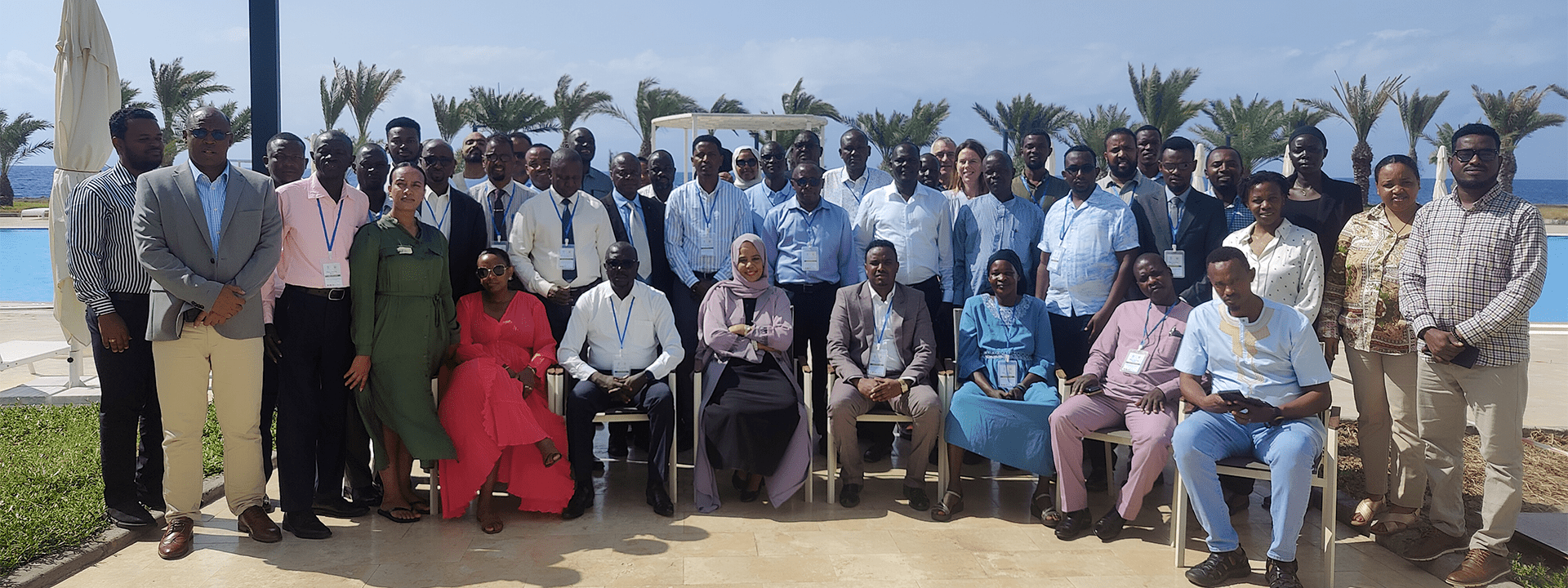March 12, 2024 (TADJOURA, Djibouti) The Intergovernmental Authority on Development (IGAD) and cities Alliance have conducted a peer learning event on the role of Secondary cities in promoting and providing durable solutions to Migration and forced displacement in Tadjoura, Republic of Djibouti.
The main objective of the three days peer learning event was to highlight the needs and the gaps that secondary cities are facing and how they can promote the inclusion of migrants and displaced populations to support the delivery of the Comprehensive Refugee Response Framework (CRRF) and international agendas in the Horn of Africa.
Speaking on behalf of IGAD Executive Secretary Dr. Workneh Gebeyehu, Madam Fathia Alwan, the Director for Health and Social Development Division, highlighted that secondary cities while often overlooked in discussions on urbanization and migration, possess untapped potential as engines of sustainable development and inclusion.
She further emphasized that the Secondary cities’ geographical locations, infrastructure, and community networks position them as critical hubs for accommodating and integrating displaced populations.
“Throughout this event, we will delve into various aspects of secondary cities’ involvement in providing durable solutions to forced displacement and migration.”
The Learning event follows a series of events dedicated to exchanging experiences with representatives of partner cities and community stakeholders to strengthen policy development for greater social cohesion.
Political and technical leaders from urban authorities and cities of Arua, Koboko, Kakuma, Asosa, Jigjiga, Addis Ababa, Gabiley, Borama, Galmudug, Hargeisa, Dushamared and refugee representatives from South Sudan attended the engagement.
This event was jointly organised by the IGAD Support Platform on Forced Displacement and Cities Alliance under the theme of Forced Displacement and Rapid Urbanisation: Better Planning for Better Integration.
The Prefect of Tadjoura region, the host city, Mr. Mohamed Houmed Abass, underscored the need for constant exchange of experiences and learning between peers as it was key enhancing regional integration.
“I would like to express my sincere congratulations to IGAD for its constant efforts aimed at achieving regional integration of IGAD member states through promoting and providing lasting solutions to migration, the movement of persons and goods,” he stressed.
Data Collection Tool Launched
In sessions facilitated by Cities Alliance’s Julian Baskin and Florence Lozet, a new rapid assessment tool that enables cities to systematically collect data needed for comprehensive, inclusive and sustainable city planning was introduced and evaluated by participants.
The event was also a platform for the review of the soon-to-be-launched Sustainable Urban Integration of Displacement Affected Communities (SUIDAC) programme (2024) which focuses on ‘inclusive urban development and mobility action’ to which IGAD is a key stakeholder. The Action will focus on the governance, citizenship, environment, economic realities, and services that lie at the nexus between forced displacement and urban development in five countries; the Democratic Republic of Congo (DRC), Ethiopia, Somalia, Sudan, and Uganda.
The Coordinator of the IGAD Support Platform on Forced Displacement, Mr. Charles Obila, explained that a significant number of refugees and Internally Displaced Persons are settling in urban or semi-urban areas.
According to Mr. Charles, the shift has put considerable pressure on cities, especially fast-growing secondary cities in developing countries that are already struggling to meet the needs of their populations.
Participant Feedback
Participants shared experiences and feedback in different aspects including strengthened policy and enhanced inclusion of migrants and displaced populations.
Ms. Hodan Omer Ismail, the Head of the Protection Department of National Displacement and Refugee Agency (NDRA) Hargeisa, Somaliland, said the event was timely to learn how leaders from other cities were deploying inclusive strategies for both migrants and forced displaced in their urban development plans.
The Mayor of Koboko Municipal Council in Uganda, Dr. Wilson Sanya called on fellow leaders to use their platforms to advocate for an inclusive agenda both in the city councils and in community forums, noting that migrants and displaced persons positively affect development of secondary cities.
About the IGAD Support Platform and Cities Alliance
The IGAD Support Platform for the Global Compact on Refugees was launched in December 2019 during the first Global Refugee Forum. The Platform aims to sustain the momentum and galvanise additional support for implementing the CRRF in the IGAD region.
Cities Alliance is a global partnership that supports cities in delivering sustainable development. Through its Global Programme on Cities and Migration, Cities Alliance has committed to supporting secondary cities in low-income countries, managing large inflows of migrants and refugees.

